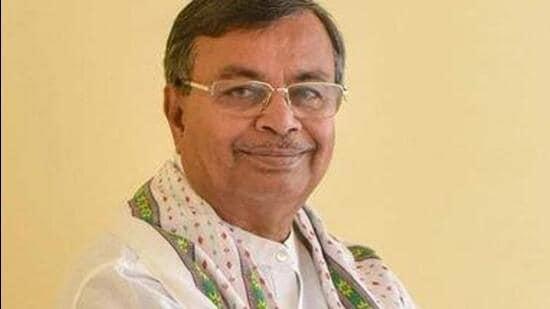A Bharatiya Janata Party (BJP) minister in Tripura has announced a reward of ₹2 lakh to the polling booth that achieves the highest voter turnout percentage in the upcoming elections. This initiative, spearheaded by Minister Ratan Lal Nath, has stirred the electoral cauldron in the state, raising questions about the ethics of incentivizing voter turnout and the broader implications for democratic norms and electoral integrity.
The announcement of the ₹2 lakh reward to the booth with the highest vote percentage reflects the BJP’s concerted efforts to galvanize voter participation and mobilize support ahead of the elections. By offering a financial incentive, the party aims to incentivize voters to exercise their franchise and actively participate in the electoral process. Proponents argue that such initiatives are instrumental in promoting democratic engagement and strengthening the electoral mandate by ensuring a more representative and inclusive democracy.
However, critics have raised concerns about the potential ramifications of incentivizing voter turnout, arguing that it could undermine the sanctity of the electoral process and erode the principles of free and fair elections. Critics contend that offering monetary rewards to polling booths may incentivize vote-buying and coercion, thereby compromising the integrity of the electoral process and undermining the democratic ideals of transparency and accountability.
Moreover, the announcement of the ₹2 lakh reward has sparked debates about the role of money in politics and the ethical boundaries of electoral campaigning. Critics argue that electoral contests should be driven by issues, ideologies, and candidates’ credentials rather than financial inducements or incentives. By introducing monetary rewards into the electoral equation, there is a risk of commodifying the democratic process and reducing voter participation to a transactional exchange rather than a civic duty.
Furthermore, concerns have been raised about the potential for the ₹2 lakh reward to exacerbate existing inequalities and disparities in voter turnout across different regions and communities. Critics argue that offering financial incentives may disproportionately benefit wealthier or more privileged areas, further marginalizing already disenfranchised communities and exacerbating socio-economic disparities in political representation.
On the other hand, proponents of the reward scheme argue that it serves as a legitimate tool for incentivizing civic engagement and promoting democratic participation, particularly in regions with historically low voter turnout. By offering tangible benefits to polling booths that achieve high voter turnout percentages, the scheme aims to promote a culture of electoral participation and foster a sense of civic responsibility among voters.
Moreover, supporters contend that the ₹2 lakh reward serves as a form of recognition and appreciation for the efforts of polling booth officials and volunteers who work tirelessly to facilitate the electoral process. By acknowledging their contributions and incentivizing excellence in voter mobilization and facilitation, the scheme aims to enhance the efficiency and effectiveness of the electoral machinery, thereby ensuring a smoother and more transparent electoral process.
In addition, the announcement of the ₹2 lakh reward to the polling booth with the highest vote percentage in Tripura has ignited a spirited debate about the ethics and efficacy of incentivizing voter turnout in elections. While proponents argue that such initiatives are instrumental in promoting democratic engagement and strengthening electoral mandates, critics caution against the potential risks of commodifying the democratic process and undermining the principles of free and fair elections. As the electoral campaign unfolds, the scheme’s impact on voter behavior and electoral outcomes remains to be seen, but its introduction has certainly injected a new dimension into the electoral discourse in Tripura.



